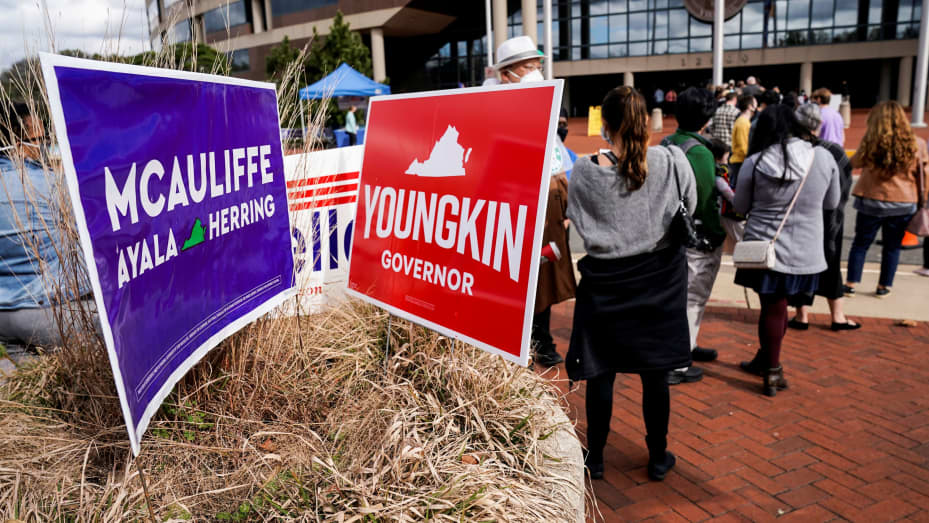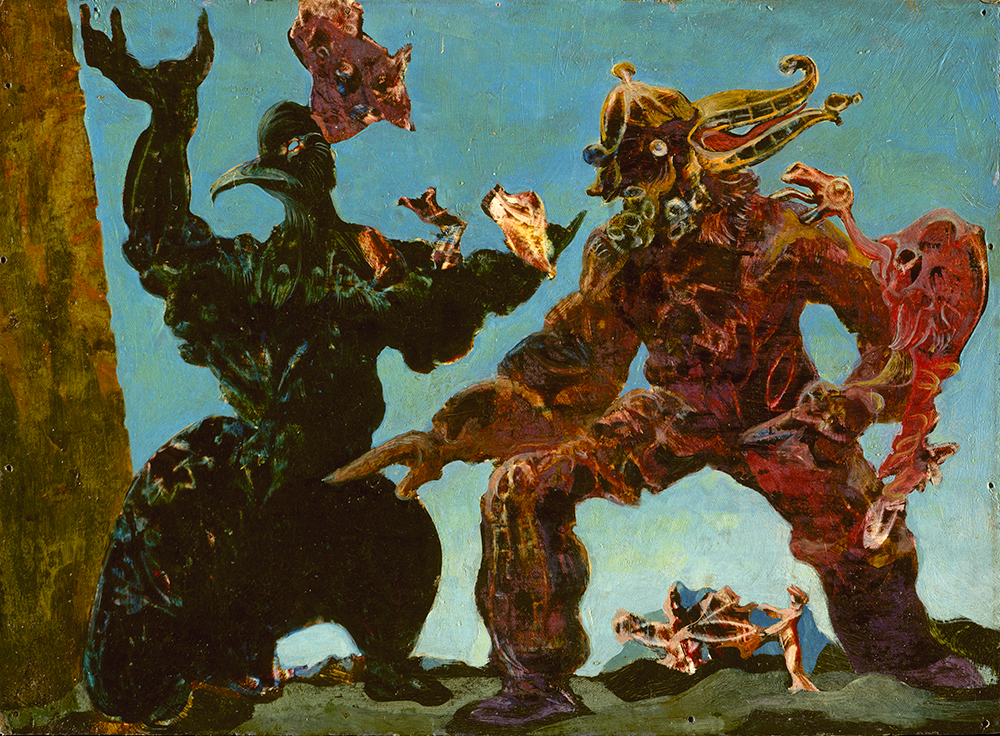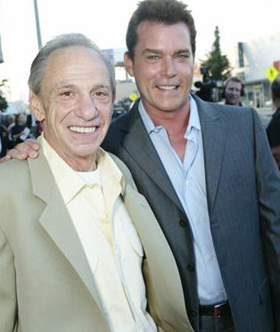Tuesday Reads: Election Day
Posted: November 2, 2021 Filed under: morning reads | Tags: Annissa Essaibi-George, Boston Mayor, Brad Raffenspurger, Glenn Youngkin, Michelle Wu, National Guard, Ruth Bader Ginsburg, SCOTUS, Terry McAuliffe, Virginia Governor 31 CommentsGood Morning!!

MIchelle Wu and Annissa Essaibi-George are running for Mayor of Boston.
Today is election day in states across the country. The is the deadlocked race between gubernatorial candidates Terry McAuliffe and Glenn Youngkin is getting the most attention, but there’s also a historic election in Massachusetts, where a woman of color most likely will be elected Mayor of Boston today. 7News Boston: Boston voters heading to the polls for historic mayor’s race.
BOSTON (AP) — Boston voters are heading to the polls Tuesday not only to choose between Democrats Michelle Wu and Annissa Essaibi George for mayor, but to mark a turning point in the city’s history, for the first time electing a woman and person of color to helm Boston.
The choice of Wu and Essaibi George for the top political post is just the latest marker of how much the Boston of not-so-long-ago — known for its ethnic neighborhoods, glad-handing politicians and mayors with Irish surnames — is giving way to a new Boston.
Throughout its long history, Boston has previously only elected white men as mayor.
Despite the groundbreaking nature of the candidates, the campaign has turned on familiar themes for the city’s 675,000 residents, including public education, policing, public transportation and the skyrocketing cost of housing.
Among the newer issues facing Boston residents is the effect of climate change on the costal metropolis.
One of the thorniest issues in the campaign is whether Boston should pursue a form of rent control or rent stabilization, something supported by Wu and opposed by Essaibi George. In 1994, Massachusetts voters narrowly approved a 1994 ballot question banning rent control statewide.
Both candidates have spent the final hours of the campaign urging their voters to get to the polls.
Nearly 40,000 ballots have already been cast in early voting. Democratic Secretary of the Commonwealth William Galvin told reporters Monday he estimates about 135,000 ballots will be cast in Boston — about 30% of the city’s 442,000 registered voters.
Both candidates are children of immigrants.
The 36-year-old Wu, whose parents immigrated to the U.S. from Taiwan, grew up in Chicago and moved to Boston to attend Harvard University and Harvard Law School.
Essaibi George, 47, a lifelong Boston resident and former public school teacher, describes herself as a first-generation Arab-Polish American. Her father was a Muslim immigrant from Tunisia. Her mother, a Catholic, immigrated from Poland.
The contest could also be a test of whether voters in a city long dominated by parochial neighborhood politics are ready to tap someone not born and raised in the city like Wu, who grew up in Chicago.
 In Virginia, McAuliffe and Youngkin are running neck and neck, and observers are speculating about how the result with impact the midterm elections in 2022. Bloomberg: Virginia Race Offers Hint of 2022 Fight to Control Congress.
In Virginia, McAuliffe and Youngkin are running neck and neck, and observers are speculating about how the result with impact the midterm elections in 2022. Bloomberg: Virginia Race Offers Hint of 2022 Fight to Control Congress.
Virginia’s gubernatorial contest Tuesday between Terry McAuliffe and Glenn Youngkin will offer the clearest picture yet of how much momentum Republicans have heading into 2022 elections that will decide control of Congress, while President Joe Biden struggles to advance his agenda in Washington.
Polls show the Virginia race essentially deadlocked as Democrat McAuliffe’s lead during the summer evaporated along with Biden’s approval ratings. In the final weeks of the campaign, Republican Youngkin, the former co-chief executive officer of the Carlyle Group Inc., has capitalized on voter frustration with national Democrats and local education issues.
The election comes a day after Senator Joe Manchin, a moderate Democrat from West Virginia, slammed the door on Biden’s wish for Congress to take quick action on his $1.75 trillion tax and spending package, the centerpiece of his presidential campaign. Virginia, a state Biden won by 10 percentage points a year ago, is a bellwether for the Congressional midterms. A McAuliffe loss would be the biggest omen for Democratic prospects to hold onto their slim majority in Congress.
Longtime Democratic strategist Jesse Ferguson said that Virginia is often an “early-warning system” for the party in power as to how it will do in the midterms, especially because of the diversity of the state, which includes rural, suburban and urban areas; military, farming and technology workers; and White, Hispanic and Black voters.
“Virginia allows you for a dry run of the arguments you’re going to make in the midterms, to see how different parts of the electorate respond,” Ferguson said.
Read more at the link.

Peter Saul, Donald Trump in Florida, 2017.
At The Atlantic, Virginia resident Michael Tolhurst writes that a Youngkin win in Virginia could lead to a Constitutional crisis. That’s because governors control the National Guard. I can only provide a brief excerpt, so I hope you’ll read the entire article at The Atlantic.
…[i]n addition to the substantive policy disagreements or politics as pastime, people across America should be monitoring the outcome of this race for another reason: Governors command the National Guard, and after the January 6 riot, the country saw the National Guard defend our constitutional order.
at the outbreak of the Civil War, the prompt arrival of the 6th Regiment Massachusetts Volunteer Militia in Washington, D.C., in April 1861 helped secure a capital precariously close to the battlefront. Later forces arrived, building up the defenses around the city in the Northern Virginia towns of Arlington and Alexandria. This included, a century and a half before I came to live in the area, Connecticut’s 22nd Regiment in which my many-greats-grandfather Edwin Tolhurst served. (His military experience was unromantic—he dug ditches in the red mud of Northern Virginia for nine months, caught consumption, and died shortly after he was discharged.)
We’re not, of course, in a civil war. But law professors and public intellectuals have seriously discussed the possibility of secession or a “national divorce.” A recent University of Virginia study revealed that 41 percent of people who voted for Joe Biden in 2020 and 52 percent of Donald Trump voters “at least somewhat agree that it’s time to split the country.” The same study revealed that significant numbers on both sides wish their preferred president wouldn’t have to be constrained by Congress or the courts.
Given this tinderbox, we unfortunately have to revisit the question of what role the present-day state militias—the National Guard—and the governors who command them might play in a constitutional crisis. As the writer Andrew Sullivan put it, there is an “increasingly nihilist cult on the right among the GOP” that has shown an “increasingly menacing contempt for electoral integrity and a stable democracy.” Will all elected governors rush to the defense of the constitutional order when necessary, as did the 6th Massachusetts and the 22nd Connecticut? Or will they fight for a separatist movement? This is not a happy thought, but as even previously respectable institutions are being coy about the possibility of such a conflict, it must be considered.
It’s difficult to accept that the situation is getting that serious, but you just have to look at how completely the Republican Party has been captured by the Trump/Q-Anon cults to understand that we need to be prepared for the worst. I still need to finish reading the powerful Washington Post series on the January 6 insurrection, but I hope to do so this afternoon.

The Barbarians by Max Ernst, 1937
Harking back to the 2020 presidential election, Georgia Secretary of State Brad Raffenspurger has written a book. AP: Georgia official: Trump call to ‘find’ votes was a threat.
Donald Trump was threatening Georgia Secretary of State Brad Raffensperger when he asked him to help “find” enough votes to overturn his loss in Georgia to Democratic President Joe Biden, Raffensperger writes in a new book.
The book, “Integrity Counts,” was released Tuesday. In it, Raffensperger depicts a man who defied pressure from Trump to alter election results, but also reveals a public official settling political scores as he seeks to survive a hostile Republican primary environment and win reelection in 2022.
An engineer who grew wealthy before running for office, Raffensperger recounts in his book the struggle in Georgia that followed Biden’s narrow victory, including death threats texted to his wife, an encounter with men who he says may have been staking out his suburban Atlanta home, and being escorted out of the Georgia capitol on Jan. 6 as a handful of right-wing protesters entered the building on the same day many more protesters stormed the U.S. Capitol.
The book climaxes with the phone call, which was recorded and then given to multiple news organizations. Raffensperger — known as a conservative Republican before Trump targeted him — writes that he perceived Trump as threatening him multiple times during the phone call.
“I felt then — and still believe today — that this was a threat,” Raffensperger writes. “Others obviously thought so, too, because some of Trump’s more radical followers have responded as if it was their duty to carry out this threat.”
Fulton County District Attorney Fani Willis is investigating potential attempts to improperly influence Georgia’s 2020 election. Raffensperger said in an interview with The Associated Press that Willis’ investigators have talked to some employees in his office, but that he hasn’t been interviewed.
Read more about the book at USA today: Brad Raffensperger, GOP target of Trump ire in Georgia, warns of potential for more election violence.

Ruth Bader Ginsburg, by Bijou Karman
Another extremely important issue we face is that “conservatives” have taken over the Supreme Court. Linda Greenhouse at The Atlantic: What Can Liberals on the Supreme Court Do Now? They’re outnumbered, but they’re not powerless.
By the time the Supreme Court started its new term on the first Monday of October, a tumultuous summer of midnight orders and unsigned opinions had left no doubt about who was in charge. A five-member conservative bloc, anchored by three Trump-appointed justices, had largely stripped Chief Justice John Roberts of leverage and the three remaining liberals of any hope of striking a meaningful alliance with him. The best the liberals can hope for now, even with the chief justice on their side, is a 5–4 loss.
What path is open to them? Can they play a weak hand in a way that can make a difference? Is building bridges worthwhile, or has the time come to burn them all down? These are the questions hovering over the opening of a term that is likely to produce major decisions on abortion, religion, and the Second Amendment.
Perhaps some answers can be found in the memory of Ruth Bader Ginsburg, who died in September 2020 and was replaced with astonishing speed by Amy Coney Barrett. Powerless in her later years to change minds on the increasingly conservative Court, Ginsburg used the tool at her disposal: her voice. The purpose of her blunt and quotable dissenting opinions was not only to call out the majority when she believed it was wrong but to shape how the public understood the Court’s actions.
It’s easy to forget that this was not always Ginsburg’s way. For most of her years on the public stage, there was nothing flamboyant about her. Quite the opposite: A woman of few, precisely chosen words, she seemed content to fade into the background. During her years on the federal appeals court in Washington, she was so well known for her friendship with that court’s conservatives, particularly Antonin Scalia, who moved up to the Supreme Court in 1986, that many leaders of the women’s movement didn’t quite trust her when Bill Clinton chose her to fill his first Supreme Court vacancy, in 1993. In a lecture Ginsburg delivered months before her nomination, she emphasized the importance of dialogue and said that the “effective judge … strives to persuade, and not to pontificate,” and “speaks in a moderate and restrained voice.”
She didn’t become the “Notorious RBG” until much later; the bestselling biography Notorious RBG: The Life and Times of Ruth Bader Ginsburg came out in 2015. By then, Ginsburg had been on the Court for 22 years. It wasn’t so much that Ginsburg had changed as that the Court and the culture had changed around her.
Read the rest at The Atlantic.
Today will be a busy news day. What stories are you following? Please share your thoughts and links in the comment thread below.
Angry Saturday Reads: The Worst (So Far) Has Happened
Posted: September 19, 2020 Filed under: morning reads, U.S. Politics | Tags: Donald Trump, going nuclear, Mitch McConnell, Ruth Bader Ginsburg, SCOTUS, U.S. Supreme Court 24 CommentsGet Angry and Stay Angry!!
The worst (so far) has happened with the heartbreaking loss of Supreme Court Justice Ruth Bader Ginsburg. Trump and McConnell are determined to replace her with a right wing ideologue before the election. Democrats must fight tooth and nail to keep them from succeeding, because that was Justice Ginsburg’s dying wish.
Nina Totenberg at NPR: Justice Ruth Bader Ginsburg, Champion Of Gender Equality, Dies At 87.
Justice Ruth Bader Ginsburg, the demure firebrand who in her 80s became a legal, cultural and feminist icon, died Friday. The Supreme Court announced her death, saying the cause was complications from metastatic cancer of the pancreas.
The court, in a statement, said Ginsburg died at her home in Washington, D.C., surrounded by family. She was 87.
“Our nation has lost a justice of historic stature,” Chief Justice John Roberts said. “We at the Supreme Court have lost a cherished colleague. Today we mourn but with confidence that future generations will remember Ruth Bader Ginsburg as we knew her, a tireless and resolute champion of justice.”
Architect of the legal fight for women’s rights in the 1970s, Ginsburg subsequently served 27 years on the nation’s highest court, becoming its most prominent member. Her death will inevitably set in motion what promises to be a nasty and tumultuous political battle over who will succeed her, and it thrusts the Supreme Court vacancy into the spotlight of the presidential campaign.
Just days before her death, as her strength waned, Ginsburg dictated this statement to her granddaughter Clara Spera: “My most fervent wish is that I will not be replaced until a new president is installed.”
She knew what was to come. Ginsburg’s death will have profound consequences for the court and the country. Inside the court, not only is the leader of the liberal wing gone, but with the court about to open a new term, the chief justice no longer holds the controlling vote in closely contested cases.
[Emphasis added.]

NPR’s Nina Totenberg, and U.S. Supreme Court Justice Ruth Bader Ginsburg, Saturday, Dec. 15, 2018. (AP Photo/Rebecca Gibian)
This morning, Totenberg discussed her long friendship with Justice Ginsburg: A Five-Decade-Long Friendship That Began With A Phone Call.
In 1971, newly assigned to cover the Supreme Court, I was reading a brief in what would ultimately be the landmark case of Reed v. Reed. It argued that the Fourteenth Amendment equal protection clause applied to women. I didn’t understand some of the brief, so I flipped to the front to see who the author was, and I placed a call to Rutgers law professor Ruth Bader Ginsburg.
By the time I hung up an hour later, I was so full of information that I was like a goose whose innards were ready for fois-gras. I soon began calling professor Ginsburg regularly, and eventually I met her in person at a conference in New York. We never did agree what the subject of that conference was, but take my word for it, it was boring. So boring that we…well, we went shopping.
We would become professional friends, and later, close friends after she moved to Washington to serve on the federal appeals court here and later, on the U.S. Supreme Court.
Some of the stories that follow have little to do with her brilliance, hard work, or devotion to the law, or even her pioneering role as the architect of the legal fight for women’s rights in this country. Rather, they are examples of her extraordinary character, decency, and commitment to friends, colleagues, law clerks — just about everyone whose lives she touched. I was lucky enough to be one of those people.
Read Totenberg’s reminiscences at the NPR link.
Linda Greenhouse at The New York Times: Ruth Bader Ginsburg, Supreme Court’s Feminist Icon, Is Dead at 87.
.Barely five feet tall and weighing 100 pounds, Justice Ginsburg drew comments for years on her fragile appearance. But she was tough, working out regularly with a trainer, who published a book about his famous client’s challenging exercise regime.
As Justice Ginsburg passed her 80th birthday and 20th anniversary on the Supreme Court bench during President Barack Obama’s second term, she shrugged off a chorus of calls for her to retire in order to give a Democratic president the chance to name her replacement. She planned to stay “as long as I can do the job full steam,” she would say, sometimes adding, “There will be a president after this one, and I’m hopeful that that president will be a fine president.”
When Justice Sandra Day O’Connor retired in January 2006, Justice Ginsburg was for a time the only woman on the Supreme Court — hardly a testament to the revolution in the legal status of women that she had helped bring about in her career as a litigator and strategist.
Her years as the solitary female justice were “the worst times,” she recalled in a 2014 interview. “The image to the public entering the courtroom was eight men, of a certain size, and then this little woman sitting to the side. That was not a good image for the public to see.” Eventually she was joined by two other women, both named by Mr. Obama: Sonia Sotomayor in 2009 and Elena Kagan in 2010.
After the 2010 retirement of Justice John Paul Stevens, whom Justice Kagan succeeded, Justice Ginsburg became the senior member and de facto leader of a four-justice liberal bloc, consisting of the three female justices and Justice Stephen G. Breyer. Unless they could attract a fifth vote, which Justice Anthony M. Kennedy provided on increasingly rare occasions before his retirement in 2018, the four were often in dissent on the ideologically polarized court.
Justice Ginsburg’s pointed and powerful dissenting opinions, usually speaking for all four, attracted growing attention as the court turned further to the right. A law student, Shana Knizhnik, anointed her the Notorious R.B.G., a play on the name of the Notorious B.I.G., a famous rapper who was Brooklyn-born, like the justice. Soon the name, and Justice Ginsburg’s image — her expression serene yet severe, a frilly lace collar adorning her black judicial robe, her eyes framed by oversize glasses and a gold crown perched at a rakish angle on her head — became an internet sensation.
Read the rest at the NYT.
Ginsburg biographer Irin Carmon at New York Magazine: The Glorious RBG: I learned, while writing about her, that her precision disguised her warmth.
Ruth Bader Ginsburg used to instruct her clerks to get it right and keep it tight, so I’ll try to do the same. Only someone so stubborn and single-minded, someone so in love with the work, could have accomplished what she did — as a woman, survived discrimination and loss; as a lawyer, compelled the Constitution to recognize that women were people; as a justice, inspired millions of people in dissent. (I asked her once in an interview what she had changed her mind about and she refused to answer. “I don’t dwell on that kind of question,” she said. “I really concentrate on what’s on my plate at the moment and do the very best I can.”) What made her RBG would also enact the most tragic and sickening ironies of today.
The feminist with a fundamentally optimistic vision, who believed that people, especially men, could be better, might be soon replaced by the rankest misogynist. The litigator and jurist who long subordinated her own immediate desires to the good and legitimacy of institutions, who had preached that slow change would stave off backlash, lived long enough to see Trump and the Federalist Society tear off the Court’s thin veneer of legitimacy anyway. In the 2013 voting-rights dissent that earned her the Notorious RBG nickname, Ginsburg offered an addendum to Martin Luther King Jr.’s suggestion that the arc of history eventually bent toward justice: “if there is a steadfast commitment to see the task through to completion.” She was thus committed. Still, today she leaves the work not only unfinished but at risk of being undone.
Ginsburg was born in 1933 in Flatbush, and her stoicism was forged in a childhood spent in a house that, she said, bore “the smell of death.” When she was 2, her only sister died of meningitis; one day short of her high-school graduation, her mother died of cervical cancer. Celia Bader, who had once broken her nose reading while walking down the street but whose sweatshop wages had gone to her brother’s education, left behind secret college savings for her daughter and a will to accomplish what Celia had been denied.
Click the link to read more about Ginsburg’s life.
What can Democrats do to honor Ginsburg’s dying wish? Some possibilities:
David Corn at Mother Jones: To Honor Ginsburg, Democrats Have One Choice: Go Nuclear.
What is coming, at least as the Republicans see it, is a grand political clash. They have been hellbent on reshaping the entire federal judiciary and especially drool over the prospect of locking the highest court into a right-wing course that will last decades and counter demographic trends that favor Democrats. This is their Holy Grail….So Ginsburg’s departure is a gift for Trump. If there has been any erosion occurring on the edges of his conservative and evangelical base, his effort to shove another anti-choice, pro-corporate conservative on to the highest court could certainly shore up that ground for him….
Ginsburg, a hero of female empowerment and of the Supreme Court, deserves much mourning. But Democrats and progressives can waste no time prepping for the battle royal that lies ahead. After all, it took Senate Majority Leader Mitch McConnell mere minutes after the news of RBG’s passing to declare that the GOP-controlled Senate will vote on whoever Donald Trump sends its way to fill the Supreme Court vacancy—a direct eff-you to the Democrats after McConnell in 2016 refused to consider President Barack Obama’s SCOTUS nominee Merrick Garland with the phony-baloney argument that the Senate should not consider new justices during an election year. So yes, Dems will have to organize, but they must do more: They have to get ready to rumble….
It will be bare-knuckles politics from the right. Do or die. By any means necessary. To replace Ginsburg with a young right-wing extremist. And for the Democrats to have a chance of thwarting them, they must realize that this fight is not only a matter of persuasion….
The win-over-reasonable-Republicans-with-reason strategy is weak sauce. That leaves the Democrats with one other choice: total political warfare. The Senate’s Democratic leader, Chuck Schumer—with the backing of Joe Biden and Nancy Pelosi—needs to threaten massive retaliation. Should McConnell try to ram a Trump nominee through, Schumer ought to vow that the Democrats, if they win back the Senate and Biden is elected president, will demolish the filibuster, which will allow the Senate to proceed to make Washington, DC, a state (two more senators, who are likely to be Democrats!) and that they will move to add two or four more seats to the Supreme Court. (There is nothing in the Constitution that limits the court’s size to the current nine justices.) In other words: They will implement a Republican nightmare (which, as it happens, can be justified on arguments of equity and fairness).
Michael Tomasky at The Daily Beast agrees with Corn: Here Are the Ways to Stop Mitch and Trump From Replacing RBG.
Trump and McConnell will move to put a hard right-winger on the court before the election. Don’t be naive. Don’t think: “They wouldn’t possibly try that.” Of course they would. And if (I hate to be macabre here, but I’m just making a point) Stephen J. Breyer were to perish tomorrow, they’d move to put two right-wingers on the bench before Election Day. It is who they are.
What power can stop them? There are only three that potentially could. Let’s look at them.
One, the Democrats. Some Democratic senators who might have Mitch’s ear, say Joe Manchin, will go to him. And Mitch will say: Fuck off. However, the Democrats have a card to play here, if Joe Biden will play it. The number nine (of Supreme Court justices) is neither in the Constitution nor law. Biden, and Chuck Schumer, can say: If you fill this seat now, if Biden wins, we’re expanding the Court to 11 or 13, and your majority is dead. And they should be ready to do it.
Two, public opinion. I expect polls will appear in the coming days showing majorities agreeing that no appointment should come until after we have a new president. As I’ve often written, our democracy is corrupted and screwed, but it’s still enough of a democracy that public opinion actually matters. Sometimes. And I think this is probably one of these times.
Three, kind of an ancillary point to public opinion: the fate of Republican senators up for re-election in tough states. Already, Alaska’s Lisa Murkowski, not up for re-election, has apparently said she will not confirm a justice until the next president is sworn in. That’s one. Democrats would need three more to say that they’ll follow Murkowski’s lead. Susan Collins, Cory Gardner, and Martha McSally seem the obvious choices. There are others. It all depends on the degree of progressive mobilizing in those states, to make those GOP senators know that if they acquiesce to McConnell’s games, they will lose. And of course there’s Mitt Romney, who does not face re-election but who might cast another conscience vote.
So all is not lost yet. But gear up for a fight. And as you do, always leave time in your mind for this remarkable, towering American. Everything we do in this corrupt period should be to honor all that she stood for.
We are already far down the road to autocracy, as Dakinikat wrote yesterday. We have to honor Ruth Bader Ginsburg’s life by fighting as hard as we can. As David Corn wrote, we have to bring a bazooka to the GOP’s gunfight.
Anger is an energy.
Monday Reads: If They Could Turn Back Time
Posted: August 26, 2013 Filed under: morning reads | Tags: Bobby Jindal, Colin Powell, global warming, Running out of Time, Ruth Bader Ginsburg, Space-time Continuum, Turning Back Time, Voting Rights Act of 1965, wormholes 20 Comments Good Morning!
Good Morning!
Well, another Monday is here. It’s my turn once again to offer up the reads for the day before starting my usual Monday “student time”. Time sure stands still when you’re trying to come to terms with challenging stuff.
There’s an interview in Saturday’s NYT with the wonderful Ruth Bader Ginsberg. I have no idea how this woman stays on at SCOTUS with all those nutty men, but she does and she says she is staying put. She doesn’t think its her time to retire.
In wide-ranging remarks in her chambers on Friday that touched on affirmative action, abortion and same-sex marriage, Justice Ginsburg said she had made a mistake in joining a 2009 opinion that laid the groundwork for the court’s decision in June effectively striking down the heart of the Voting Rights Act of 1965. The recent decision, she said, was “stunning in terms of activism.”
Unless they have a book to sell, Supreme Court justices rarely give interviews. Justice Ginsburg has given several this summer, perhaps in reaction to calls from some liberals that she step down in time for President Obama to name her successor.
On Friday, she said repeatedly that the identity of the president who would appoint her replacement did not figure in her retirement planning.
“There will be a president after this one, and I’m hopeful that that president will be a fine president,” she said.
Were Mr. Obama to name Justice Ginsburg’s successor, it would presumably be a one-for-one liberal swap that would not alter the court’s ideological balance. But if a Republican president is elected in 2016 and gets to name her successor, the court would be fundamentally reshaped.
Here’s some research on wormholes that is very weird and intriguing. It is all about spacetime.
Wormholes! I feel like we haven’t talked about them since the ’90s. Basically, wormholes are theoretical objects that connect two different points in space. They’re allowed as possible solutions to Einstein’s equations for general relativity—indeed, Einstein and his colleague Nathan Rosen first discovered wormholes, which is why they’re also called Einstein-Rosen bridges. Unfortunately, wormholes aren’t perfect—Einstein’s equations also imply that nothing with nonnegative energy (that is to say: nothing that we know of) can traverse a wormhole, so they’re not going to make for useful intergalactic portals anytime soon.
Maldacena and Susskind, following Van Raamsdonk, posit that any time two quantum particles are entangled, they’re connected by a wormhole. They then go on to say that the wormhole connection between particles inside a black hole (the infalling virtual particles) and the particles outside of a black hole (the Hawking radiation) soothes out the entanglement problems enough so that we can avoid the firewall at the event horizon.
Note that this requires a profound rethinking of the fundamental stuff of the universe. Entanglement, a deeply quantum phenomenon, is fundamentally wound into to the geometry of the universe. Or, to flip it around, quantum weirdness may be stuff that creates the substrate of spacetime.
The Sunday news programs continue to have discussions on what will happen to voting rights now that the Supreme Court decision has muddied the waters. Cokie Roberts calls the changes “downright evil”. Can the Republicans turn back the clock on Civil Rights?
In a roundtable discussion on ‘This Week’, ABC News’ Cokie Roberts reflected on the progress in our country 50 years after the March on Washington and Martin Luther King Jr.’s ‘I have a Dream’ speech.
“Growing up in the Deep South in the era of Jim Crow, the difference is dramatic… It’s a great testament to the fact that when you do something like pass a voting rights bill. That makes a difference.”
Still, Robert’s expressed concern over recent legislation on the Voting Rights Act of 1965. In June the Supreme Court invalidated key parts of this law, which spurred contentious debates on race and equal opportunity. Critics of the ruling call it a regression. Proponents argue that the Voting Rights Act of 1965 is outdated.
Robert’s said, “What’s going on about voting rights is downright evil because it is something that really needs to keep going forward not backward.”
Former SOS Colin Powell was also on air Sunday. He continues to be one of the few reasonable Republicans left that finds his way to the airwaves even though his status has been greatly diminished by claims of WMDS in Iraq. Bet he wishes he coul go back in time and change that!! Where’s the spacetime continuum when a General needs one?
“These kinds of procedures that are being put in place to slow the process down and make it likely that fewer Hispanics and African Americans might vote I think are going to backfire, because these people are going to come out and do what they have to to vote, and I encourage that,” Powell said on CBS’s “Face the Nation.”
Following the Supreme Court ruling in June that struck down a key part of the Voting Rights Act, Republicans in states like Texas and North Carolina are advancing legislation that would require voters to show photo ID at the polls.
“They claim that there’s widespread abuse and voter fraud, but nothing substantiates that,” Powell said. “There isn’t widespread abuse.”
A Republican who has been increasingly critical of his party in recent years, Powell endorsed President Obama in both 2008 and 2012.
He said the GOP’s moves on voting access would in particular damage the party’s effort to appeal to the growing minority populations it will need to win national elections in the future. “This is not the way to do it,” Powell said.
He said he disagreed with the Supreme Court’s decision on the Voting Rights Act.
“I would have preferred that they did not reach such a conclusion, but they did, and I can see why they reached such a conclusion,” Powell said.
Meanwhile, Bobby JIndal continues to write some of the weirdest, disjointed op-eds around. This one is ironic given the current challenge to his prized Louisiana School voucher program that appears to be enabling re-segregation of schools. Remember, this is an op ed on racism as you read this weird, theocratic screed. He seems to yearn for a more simpler time. Simple, say, as his mind.
When I look at America, I see a country that increasingly has lost its way in terms of morality. As a Christian, as I look at American culture over the past half century, I don’t like a lot of what I see. Divorce is through the roof, pornography is everywhere, sexual predators are on the loose and on the Internet, our abortion rate is higher than almost every First World country, vulgarity and profanity are mainstream and commonplace. In general, our culture has become coarser, and I regret that.
Which reminds me, Jindal thinks all this fuss about the Keystone Pipeline is “alarmist” and “anti-scientific”. Here’s a local op-ed that gives him the what-for.
It is time to stop being mad at Gov. Bobby Jindal. He’s just too funny.
He was out of state again last week, but we are long past feeling neglected while he pursues his White House dream. He can forget that for sure; a politician is heading for the exit when his most earnest speeches are greeted with laughter.
If Jindal did not bring the house down when he denounced Democrats as “extremist and unscientific,” it can only have been because he was far from home and his audience was unaware of his own efforts to spread ignorance and superstition. When his remarks were reported in this country, we were in stitches.
Jindal was in Canada, promising to “fight like heck” for the Keystone XL pipeline, which will carry oil all the way to Texas if President Barack Obama, who has been considering it for five years, gives his approval. This was not exactly Daniel in the lions’ den; Jindal was speaking at the Oilmen’s Business Forum Luncheon in Alberta.
If the oilmen had reason to welcome Jindal’s views on the pipeline, however, it is a safe bet that they have been exposed to enough geology to conclude the earth has been around for quite a long time. They wouldn’t have much use for Louisiana high school graduates who had been told tales of Adam and Eve in science class.
Sitting there while Jindal claimed to be on the side of science in the pipeline row, the oilmen would have been incredulous if you told them he promoted new-earth indoctrination. Why, they would have said, next you’ll be telling us he believes in demonic possession. Well …
Jindal has also termed global warming “conjecture” and “alarmism,” a comforting view that is much less common among scientists.
Jindal’s speech was otherwise the same, hackneyed fare; the “blind” ideologues of the “radical left” are blocking the pipeline because they want energy to “remain expensive.” They want the government to “tell Americans to live in smaller houses, drive smaller cars, set their thermostats higher in the summer and lower in the winter.” They want “negative growth,” while Republicans stand for prosperity and jobs..
This simple dichotomy leaves only one question answered. Why would anyone, anywhere, ever vote Democrat?
The analysis, in truth, is so shabby that Jindal is clearly not cut out for the intellectual rigor required of, say, a scientist. Jindal’s blithe assumption that the pipeline would reduce energy prices in America is highly debatable, while he is flat wrong to deny that companies plan to re-export pipeline oil for a quick profit.
Really, nothing is safe from Republicans these days. Hide your wives and daughters! HIde your groceries too!
Which 14 cities are running out of time due to Global Warming? The number one endangered city is Miami, Florida. Boston is number 3. You don’t get to New Orleans until number 7. Read on.
There is really no way around it: Thanks to climate change, sea levels are rising. A huge question on the minds of many is, what does this mean for America? Will sea walls and city planning protect major metropolises, or are we bound to lose some national gems? Unfortunately, the latter is a significant possibility. Read on for 14 U.S. cities that could be devastated over the next century due to rising tides.
So, what’s on your reading and blogging list this morning? Because, now it’s your time.














Recent Comments